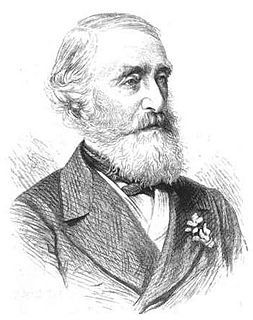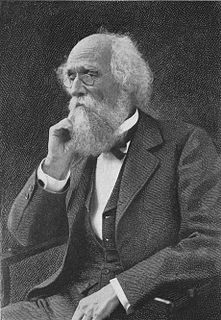A Quote by Charles Lapworth
Nothing perhaps has so retarded the reception of the higher conclusions of Geology among men in general, as ... [the] instinctive parsimony of the human mind in matters where time is concerned.
Related Quotes
One of my favorite sketches, and a popular comedy formula, is to put someone with a mental handicap in some kind of unlikely situation. For example: The retarded gynecologist, the retarded Jesus, the retarded Osama Bin Laden. It works. It's funny. Inappropriate? I dunno. I feel like I'm a pretty good judge of what crosses the line of good taste being that I am retarded. Socially perhaps, but severly retarded.
There is nothing which an untrained mind shows itself more hopelessly incapable, than in drawing the proper general conclusions from its own experience. And even trained minds, when all their training is on a special subject, and does not extend to the general principles of induction, are only kept right when there are ready opportunities of verifying their inferences by facts.
It does not, however, seem impossible that by an attention to breed, a certain degree of improvement, similar to that among animals, might take place among men. Whether intellect could be communicated may be a matter of doubt: but size, strength, beauty, complexion, and perhaps even longevity are in a degree transmissible... As the human race could not be improved in this way, without condemning all the bad specimens to celibacy, it is not probable, that an attention to breed should ever become general.
Myth was regarded as primary; it was concerned with what was thought to be timeless and constant in our existence. Myth looked back to the origins of life, to the foundations of culture, and to the deepest levels of the human mind. Myth was not concerned with practical matters, but with meaning. Unless we find some significance in our lives, we mortal men and women fall very easily into despair. The mythos of a society provided people with a context that made sense of their day-to-day lives; it directed their attention to the eternal and the universal.
Mathematics has the completely false reputation of yielding infallible conclusions. Its infallibility is nothing but identity. Two times two is not four, but it is just two times two, and that is what we call four for short. But four is nothing new at all. And thus it goes on and on in its conclusions, except that in the higher formulas the identity fades out of sight.
Man has been condemning women. Perhaps there is a reason; perhaps he was aware of some superiority in woman - the superiority of love. No logic can be higher than love, and no mind can be higher than the heart. But the mind can be very murderous; the mind can be very violent, and that's what the mind has done for centuries. Man has been beating women, repressing women, condemning women.
So far as this argument is concerned nonhuman animals and infants and retarded humans are in the same category; and if we use this argument to justify experiments on nonhuman animals we have to ask ourselves whether we are also prepared to allow experiments on human infants and retarded adults; and if we make a distinction between animals and these humans, on what basis can we do it, other than a bare-faced - and morally indefensible - preference for members of our own species?
As human, we all have the same human potential, unless there is some sort of retarded brain function. The wonderful human brain is the source of our strength and the source of our future, provided we utilize it in the right direction. If we use the brilliant human mind in the wrong way, it is really a disaster.






































